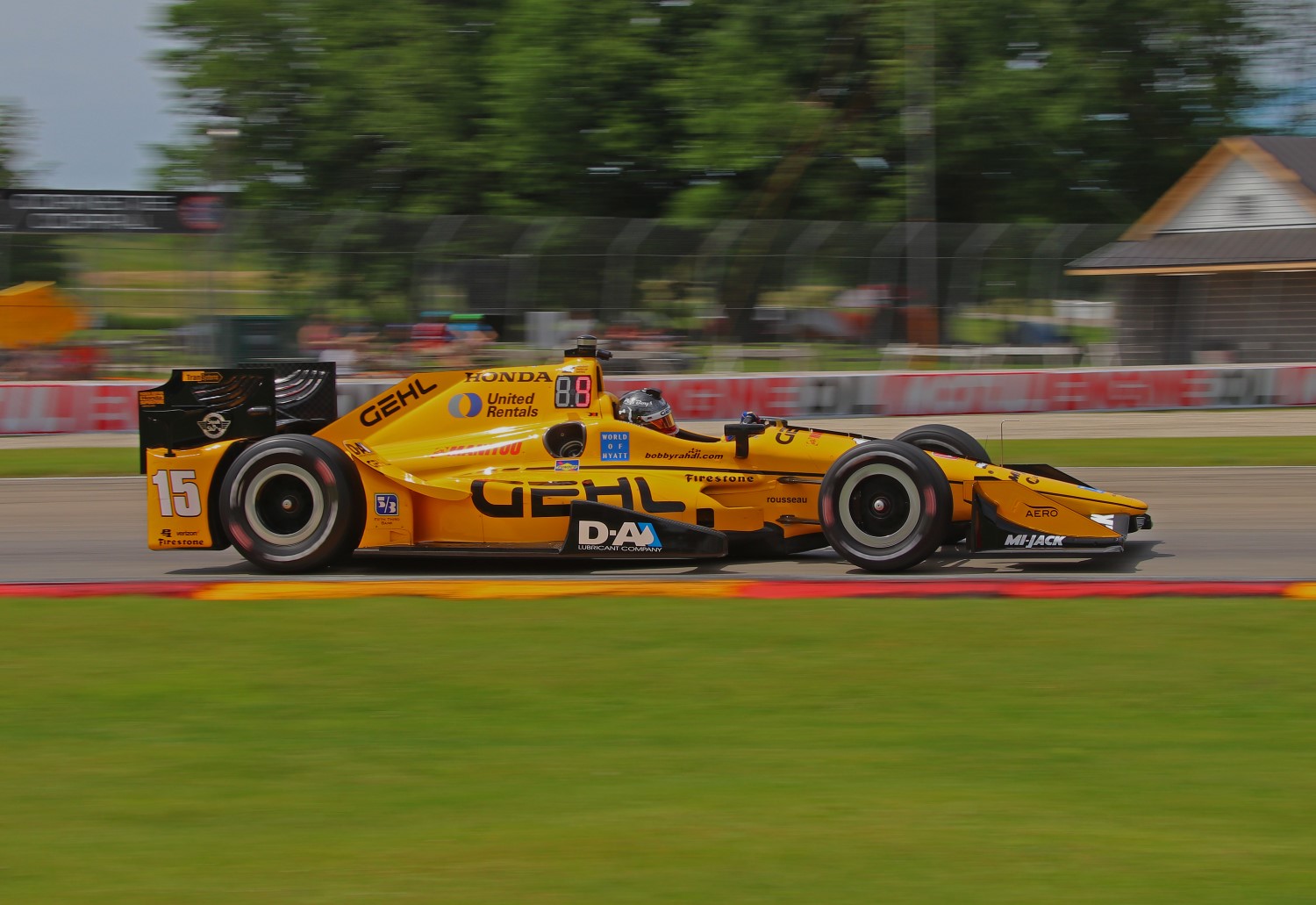IndyCar race at Road America to be economy run
 |
| Rahal says IndyCar turned the Kohler GP into a severe econo run |
It's not rocket science. Really it isn't, but someone in IndyCar appears to have flunked simple arithmetic in grade school and as a result they have turned the Kohler GP into a fuel economy run.
In press conferences Friday at Road America drivers say that IndyCar should have extended the Kohler Grand Prix at Road America by 10 rather than five laps.
The length of the track, 4.014 miles, and IndyCars make a certain MPG at full throttle, somewhere around 3.0. A three stop race is planned as always, so now drivers need to get two more laps on a tank of fuel in each stint to still make it on 3 stops.
Penske-Chevrolet’s Will Power said: “They should have added 10 laps, not five, because it's made it so everyone has to save fuel. Everyone's going for a three-stopper and saving fuel because it's such a long pit lane penalty. It's 40 seconds.
“They added the wrong amount. Should have been 10 laps, or even eight laps.
Teammate Josef Newgarden, said: “It's close, yeah. I mean, you could do either one, depending on where you are. But, you know, you can do the three stop still, so I think most people will try to do that."
Rahal Letterman Lanigan Racing’s Graham Rahal stated: “I'm afraid we didn't lengthen it enough because we can still make it in three stops. Now it just becomes a severe fuel-saving race, which isn't what we wanted to do. We did the same thing in Long Beach this year.
“We just have to hit our number and try to get there. I think when I looked at the strategy, it's about 28 seconds faster to do a three-stop over a four, because pit road is so long here. We have the pit speed limiter at the start of the bridge, it takes forever. It's a big-time loss.
“A yellow or two in there will completely change this thing… But I don't bank on yellows any more because to me the driving talent is so high now, guys don't make mistakes like they used to, so we don't see as many yellows."
